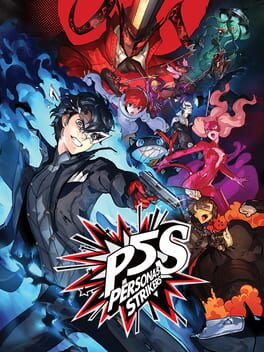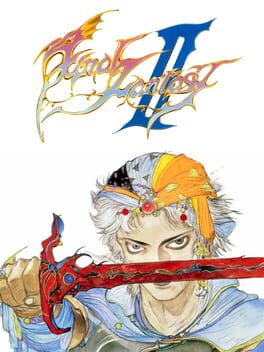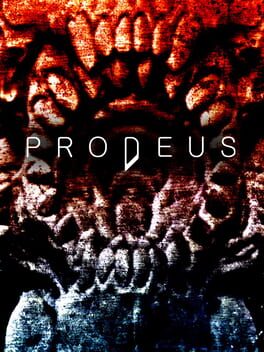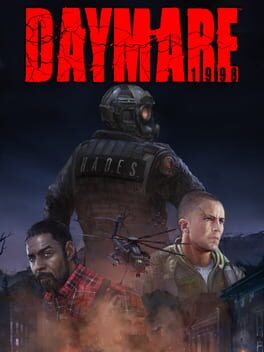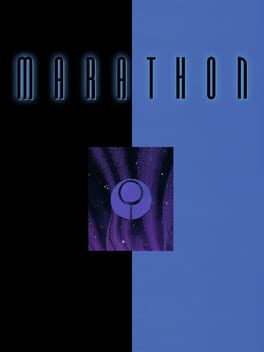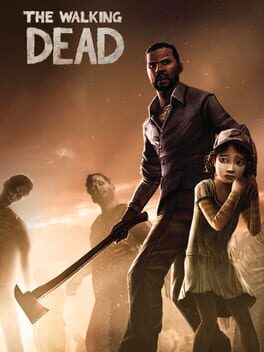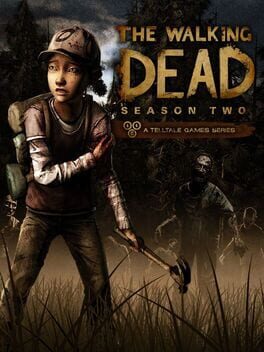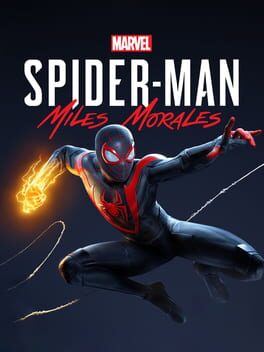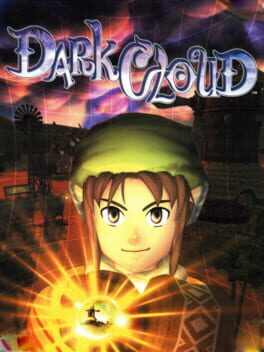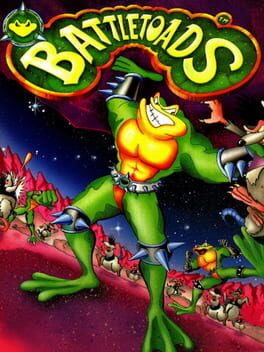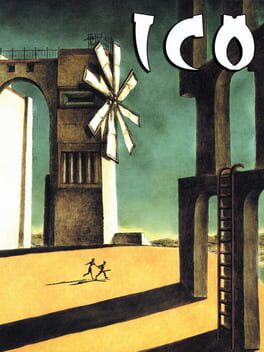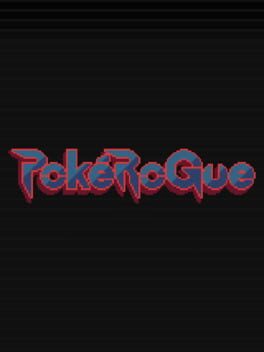sondi
BACKER
394 Reviews liked by sondi
Persona 5 Strikers
2020
Little did we know, Atlus would once again fumble these characters' developments in a soulless, unnecessary spin-off just 3 years later.
This game is one of the few great Persona spin-offs, sporting not only pretty good gameplay, but a nice story that doesn't overstay its welcome. I deeply enjoyed my time with it back in 2020, and it's one of the few Atlus games post-2020 that I had no major issues with. (Could it be, perhaps, that it's because it wasn't even developed by them? Maybe.)
This game is one of the few great Persona spin-offs, sporting not only pretty good gameplay, but a nice story that doesn't overstay its welcome. I deeply enjoyed my time with it back in 2020, and it's one of the few Atlus games post-2020 that I had no major issues with. (Could it be, perhaps, that it's because it wasn't even developed by them? Maybe.)
Final Fantasy II
1988
When a friend first asked me how I would describe Final Fantasy II, I was about half way through the game, and had just met Leila. I didn’t really know how to describe it, it was something I couldn’t compare to anything I’d played before. It led me through the story like an early JRPG but with early WRPG mechanics. It was bizarre and completely threw me off from what I learned in FFI. So much of what I learned from the first game didn’t matter at all now, and what it was trying to teach me seemed almost alien. So of course, my natural response to my friend was a wary, “Have you ever played… Morrowind?”
Final Fantasy II is nothing like Morrowind. Well, it has its similarities, as comparing any game from the same genre to each other would, I guess. I came into Final Fantasy II having only the original Final Fantasy to compare it to… eh, within the Final Fantasy series at least, as I have played a handful of 3rd-gen RPGs before it. Maybe it’s why I ended up thinking of FFII so positively compared to others. Maybe that’s a negative, but I like to think of it as a positive. It keeps me thinking of FFII in the bubble it originally released to, but unfortunately that also lacks me being able to compare it to much else.
One thing I should warn before diving fully into the review is that I did play the game in Japanese, so some of the names for things might be spelled differently from my own personal transliteration vs other later official English translations (wait his name was Josef and not Joseph this whole time?!). The Famicom version I believe is also missing quite a few additions that future versions had added later on, including ones added even a couple years later in the Famicom dual-release of both FFI + FFII.
—------------------------------------------------------------
From first glance, I could immediately tell that Final Fantasy II had improved drastically from its predecessor. The creators were able to expand A LOT on what they made with the original. Just to list a few:
• You’re now able to fully go into buildings and walk around. You can even see little Firion sleeping in the inn!
• There's a crazy amount of new magic you can learn (which you see early on thanks to Ming Wu).
• You can now see your character’s negative status effects play as a funny symbol on top of them in battle (black glasses for blind, green swirls for poison, they literally turn into a rock when hit with the stone status!). It looks great and makes it easier for players to remember what exactly the current status of their party is just at a glance.
• The character designs are more varied and more detailed, even if Firion is just the fighter sprite from the first game. With Maria, we can now see our first true playable female character in the series, rather than the assumed fully-male cast of the first (or at least that’s how the English guidebook describes the cast which uh, infamously got quite a few things wrong about the game, so take that as you will LOL). You meet a very colorful cast of characters right at the start as well, with a good amount having fairly unique designs (Ming Wu is my favorite)!
• Lastly, the thing I noticed and was so happy to see was that you can now save whenever you want. Well, whenever you’re on the overworld map. But, still! It’s a button that’s always on your menu screen. You don’t have to bank on having a hotel or cottage in your pocket so you can save before a dungeon, which can make expeditions infinitely less frustrating.
The story of FFII is surprisingly engaging for a 3rd-gen game, with it starting out with a 5 minute long interactive cutscene kinda thing. Watching it, you quickly learn that you now have a set story with characters that have a set destiny. You can name them and train them to be whatever you want, but no matter what, the story has a path it will always take with characters you can’t always predict. Oh boy, how you can not predict. About 2/3rds of the temporary party members who join you end up dying! Even NPCs you don’t interact with too often end up dying! But hey, the story does focus around war, and what’s war without loss. Though more realistically, I imagine they killed off a majority of your short-term party members as a way to cycle through different characters and show the player different builds they themselves could evolve on. My favorite non-player characters that I met along the way were Paul the Ninja, and Sid and his son, who offer a shuttle with their flying boat not unlike the one from the first game… hey wait, why does Sid have his clearly underaged son in a bar? Oh well, it works for the story. Just try not to think about it!
There’s little things I can nitpick though, of course. I absolutely hate the new map. I understand this map is WAY bigger than the last, and the illusion of the globe allows them to fit more with less, but holy shit its soooo slow - and if I just want to check what direction I want to go to reach a dungeon, I have to slowlyyyyyyy wait for the globe to turnnn and inchhhh and oooo we’re almost there, baby!!!! Well, this shouldn’t be a problem, right? Final Fantasy I, Dragon Quest, Legend of Zelda are all games that provide a full map for you in the manual to glance at, so there must be one in this manual- nope. Okay, what about the guidebook? You know, the thing you spend extra money on to hold your hand and show you how to get through the whole game- nope. There’s no maps at all actually, even for the dungeons! Remember how Final Fantasy I had big maps for the player to scan through for everything, all within the manual packaged with the game? Well, Final Fantasy II says “Fuck you, why don’t you figure out,” as they hand you Slowpoke Rodriguez’s favorite class globe.
The manual and guidebook at least are very useful in including every little detail about the new leveling system, and also informing the player on what all the new magic does. A stupid complaint, but skimming through this lovely mapless guidebook, I was excited to see Chocobos appear, which are like giant chickens your player can ride on! Unfortunately, I never ran into them once throughout the entire game. They seemed cute, and the book says you can find them in a specific forest if you wander, but I never found one, even when purposefully looking for them. Oh well, maybe I was just unlucky!
Wait, that’s it? Those are the only complaints? It seems like FFII should smell like roses in comparison to FFI after all that, shouldn’t it? Well, it does…! It does, except for one very small, very tiny detail…
GAMEPLAY AND RPG MECHANICS
FFII doesn’t level in the way that Dragon Quest or even the original Final Fantasy do. In fact, the closest comparison I can personally make to a game that I’ve played that came out before FFII is regular tabletop DND. When you want to level up, you have to focus on a specific skill or trait. It’s not as simple as leveling up your magic to improve your magic; you have to focus on what exactly you want to level up in your magic. Did you want your magic attack to be stronger? Then focus on using the specific spell you want to be stronger, as the more you use it the more it levels up. Did you need more MP? Then use more magic to get more magic! Using magic in general also helps level up your magic strength… but specifically your intelligence or spirit which correlate to your black and white magic respectively. See where I got the Morrowind comparison? It’s a lot, but as you can see with my magic example, a lot of it relies on each other, so if you play naturally, you should still level up naturally like you would in FF1.
That would be all fine and dandy, except you don’t level up the way the creators intended. I don’t know whose idea it was to go against the golden rule for JRPGs since Dragon Quest: Allow players to level up quickly with the game requiring more points to level up the further they play. For example, to get to level 2 in… let’s say using a sword, maybe you need to use it 10 times before it reaches level 2. After that, then you need to use it 20 times to reach level 3, and so far so forth. FFII doesn’t do that, and I think that’s where its biggest flaw shows. It requires you to use whatever it is you want 100 times each time you want to level it up, all from the start. It’s awful, to put it lightly. The great thing to remember is all the Final Fantasys on the Famicom are insanely broken! As a result, I quickly found out that you can input a move on a party member and quickly cancel it and do it again. It only takes one move but it still counts the first use, essentially doubling the points I get from it. Do this 50 times, and you just leveled yourself up in one battle. Though of course, it’s just that one thing you leveled up, whether that be a magic skill, your attack, defense, HP, MP, or whatever else you focused on. It unfortunately also can mess with the leveling a crazy amount as well. Ugh, just think! This would be significantly less of a problem if they just followed the guide of leveling-up starting fast only to slow it down the further you go. They did it in FFI, so they must have found an issue to force the mandatory 100 points for FFII… On top of that all, the same issues with magic in FFI still exist in FFII, with a nice chunk of spells being completely broken and not working the way they intended. Most infamously it affects Ultima, a spell intended to be the most powerful in the entire game. The only way to figure out what works and what doesn’t is through trial and error- how horrendous! Thankfully, we live in the future, so I was able to quickly find a guide online that lets modern players know what magic to not waste their time on.
This is the biggest turn-off of Final Fantasy II to players, and I don’t blame them. I especially don’t blame players who had to try and figure out everything without the manual guiding them through this incredibly involved leveling system. I found the manual and guidebook for FFII on Internet Archive, and even with that by my side I constantly had to look at it over and over to remember what exactly I had to do to level-up myself up. Eventually, I just wrote and drew a shitty guide just for myself so I could more easily memorize it. In the end, I got there! Then I had to read and memorize all the new magic spells! Oh, well. As someone who loves journaling and taking notes, I really didn’t mind it, but of course I can understand how unbearable it could be for someone who doesn’t like it. It reminded me, again, of tabletop gaming and how when I play that with friends, I often fill a whole booklet with my little notes. Maybe I was used to it? Maybe I just felt it immersed me better into the story, and helped me feel more understanding of how the gameplay meshed with the narrative. In the end, it helped me gain a bit of an emotional attachment to it all; characters and game mechanics alike.
—------------------------------------------------------------
Well, how would I compare it to my friend now, after finishing it? I’ve been told the Romancing Saga series takes heavy inspiration from it mechanically, and by the time I finished I could see the Star Wars parallels loud and clear. Obviously, it has its Wizardry, Ultima, and Dragon Quest influences… What didn’t back then? But how would I describe FF2?
It’s broken, it’s unreliable, it’s confusing. But it’s also rewarding, emotional, and easy to get wrapped into. It tried crazy things for both the time and platform it released on, but it found its people, and its people found it.
Final Fantasy II is like Final Fantasy II. You wanna know what THAT means? Well, play it and you’ll find out!
4/5
Final Fantasy II is nothing like Morrowind. Well, it has its similarities, as comparing any game from the same genre to each other would, I guess. I came into Final Fantasy II having only the original Final Fantasy to compare it to… eh, within the Final Fantasy series at least, as I have played a handful of 3rd-gen RPGs before it. Maybe it’s why I ended up thinking of FFII so positively compared to others. Maybe that’s a negative, but I like to think of it as a positive. It keeps me thinking of FFII in the bubble it originally released to, but unfortunately that also lacks me being able to compare it to much else.
One thing I should warn before diving fully into the review is that I did play the game in Japanese, so some of the names for things might be spelled differently from my own personal transliteration vs other later official English translations (wait his name was Josef and not Joseph this whole time?!). The Famicom version I believe is also missing quite a few additions that future versions had added later on, including ones added even a couple years later in the Famicom dual-release of both FFI + FFII.
—------------------------------------------------------------
From first glance, I could immediately tell that Final Fantasy II had improved drastically from its predecessor. The creators were able to expand A LOT on what they made with the original. Just to list a few:
• You’re now able to fully go into buildings and walk around. You can even see little Firion sleeping in the inn!
• There's a crazy amount of new magic you can learn (which you see early on thanks to Ming Wu).
• You can now see your character’s negative status effects play as a funny symbol on top of them in battle (black glasses for blind, green swirls for poison, they literally turn into a rock when hit with the stone status!). It looks great and makes it easier for players to remember what exactly the current status of their party is just at a glance.
• The character designs are more varied and more detailed, even if Firion is just the fighter sprite from the first game. With Maria, we can now see our first true playable female character in the series, rather than the assumed fully-male cast of the first (or at least that’s how the English guidebook describes the cast which uh, infamously got quite a few things wrong about the game, so take that as you will LOL). You meet a very colorful cast of characters right at the start as well, with a good amount having fairly unique designs (Ming Wu is my favorite)!
• Lastly, the thing I noticed and was so happy to see was that you can now save whenever you want. Well, whenever you’re on the overworld map. But, still! It’s a button that’s always on your menu screen. You don’t have to bank on having a hotel or cottage in your pocket so you can save before a dungeon, which can make expeditions infinitely less frustrating.
The story of FFII is surprisingly engaging for a 3rd-gen game, with it starting out with a 5 minute long interactive cutscene kinda thing. Watching it, you quickly learn that you now have a set story with characters that have a set destiny. You can name them and train them to be whatever you want, but no matter what, the story has a path it will always take with characters you can’t always predict. Oh boy, how you can not predict. About 2/3rds of the temporary party members who join you end up dying! Even NPCs you don’t interact with too often end up dying! But hey, the story does focus around war, and what’s war without loss. Though more realistically, I imagine they killed off a majority of your short-term party members as a way to cycle through different characters and show the player different builds they themselves could evolve on. My favorite non-player characters that I met along the way were Paul the Ninja, and Sid and his son, who offer a shuttle with their flying boat not unlike the one from the first game… hey wait, why does Sid have his clearly underaged son in a bar? Oh well, it works for the story. Just try not to think about it!
There’s little things I can nitpick though, of course. I absolutely hate the new map. I understand this map is WAY bigger than the last, and the illusion of the globe allows them to fit more with less, but holy shit its soooo slow - and if I just want to check what direction I want to go to reach a dungeon, I have to slowlyyyyyyy wait for the globe to turnnn and inchhhh and oooo we’re almost there, baby!!!! Well, this shouldn’t be a problem, right? Final Fantasy I, Dragon Quest, Legend of Zelda are all games that provide a full map for you in the manual to glance at, so there must be one in this manual- nope. Okay, what about the guidebook? You know, the thing you spend extra money on to hold your hand and show you how to get through the whole game- nope. There’s no maps at all actually, even for the dungeons! Remember how Final Fantasy I had big maps for the player to scan through for everything, all within the manual packaged with the game? Well, Final Fantasy II says “Fuck you, why don’t you figure out,” as they hand you Slowpoke Rodriguez’s favorite class globe.
The manual and guidebook at least are very useful in including every little detail about the new leveling system, and also informing the player on what all the new magic does. A stupid complaint, but skimming through this lovely mapless guidebook, I was excited to see Chocobos appear, which are like giant chickens your player can ride on! Unfortunately, I never ran into them once throughout the entire game. They seemed cute, and the book says you can find them in a specific forest if you wander, but I never found one, even when purposefully looking for them. Oh well, maybe I was just unlucky!
Wait, that’s it? Those are the only complaints? It seems like FFII should smell like roses in comparison to FFI after all that, shouldn’t it? Well, it does…! It does, except for one very small, very tiny detail…
GAMEPLAY AND RPG MECHANICS
FFII doesn’t level in the way that Dragon Quest or even the original Final Fantasy do. In fact, the closest comparison I can personally make to a game that I’ve played that came out before FFII is regular tabletop DND. When you want to level up, you have to focus on a specific skill or trait. It’s not as simple as leveling up your magic to improve your magic; you have to focus on what exactly you want to level up in your magic. Did you want your magic attack to be stronger? Then focus on using the specific spell you want to be stronger, as the more you use it the more it levels up. Did you need more MP? Then use more magic to get more magic! Using magic in general also helps level up your magic strength… but specifically your intelligence or spirit which correlate to your black and white magic respectively. See where I got the Morrowind comparison? It’s a lot, but as you can see with my magic example, a lot of it relies on each other, so if you play naturally, you should still level up naturally like you would in FF1.
That would be all fine and dandy, except you don’t level up the way the creators intended. I don’t know whose idea it was to go against the golden rule for JRPGs since Dragon Quest: Allow players to level up quickly with the game requiring more points to level up the further they play. For example, to get to level 2 in… let’s say using a sword, maybe you need to use it 10 times before it reaches level 2. After that, then you need to use it 20 times to reach level 3, and so far so forth. FFII doesn’t do that, and I think that’s where its biggest flaw shows. It requires you to use whatever it is you want 100 times each time you want to level it up, all from the start. It’s awful, to put it lightly. The great thing to remember is all the Final Fantasys on the Famicom are insanely broken! As a result, I quickly found out that you can input a move on a party member and quickly cancel it and do it again. It only takes one move but it still counts the first use, essentially doubling the points I get from it. Do this 50 times, and you just leveled yourself up in one battle. Though of course, it’s just that one thing you leveled up, whether that be a magic skill, your attack, defense, HP, MP, or whatever else you focused on. It unfortunately also can mess with the leveling a crazy amount as well. Ugh, just think! This would be significantly less of a problem if they just followed the guide of leveling-up starting fast only to slow it down the further you go. They did it in FFI, so they must have found an issue to force the mandatory 100 points for FFII… On top of that all, the same issues with magic in FFI still exist in FFII, with a nice chunk of spells being completely broken and not working the way they intended. Most infamously it affects Ultima, a spell intended to be the most powerful in the entire game. The only way to figure out what works and what doesn’t is through trial and error- how horrendous! Thankfully, we live in the future, so I was able to quickly find a guide online that lets modern players know what magic to not waste their time on.
This is the biggest turn-off of Final Fantasy II to players, and I don’t blame them. I especially don’t blame players who had to try and figure out everything without the manual guiding them through this incredibly involved leveling system. I found the manual and guidebook for FFII on Internet Archive, and even with that by my side I constantly had to look at it over and over to remember what exactly I had to do to level-up myself up. Eventually, I just wrote and drew a shitty guide just for myself so I could more easily memorize it. In the end, I got there! Then I had to read and memorize all the new magic spells! Oh, well. As someone who loves journaling and taking notes, I really didn’t mind it, but of course I can understand how unbearable it could be for someone who doesn’t like it. It reminded me, again, of tabletop gaming and how when I play that with friends, I often fill a whole booklet with my little notes. Maybe I was used to it? Maybe I just felt it immersed me better into the story, and helped me feel more understanding of how the gameplay meshed with the narrative. In the end, it helped me gain a bit of an emotional attachment to it all; characters and game mechanics alike.
—------------------------------------------------------------
Well, how would I compare it to my friend now, after finishing it? I’ve been told the Romancing Saga series takes heavy inspiration from it mechanically, and by the time I finished I could see the Star Wars parallels loud and clear. Obviously, it has its Wizardry, Ultima, and Dragon Quest influences… What didn’t back then? But how would I describe FF2?
It’s broken, it’s unreliable, it’s confusing. But it’s also rewarding, emotional, and easy to get wrapped into. It tried crazy things for both the time and platform it released on, but it found its people, and its people found it.
Final Fantasy II is like Final Fantasy II. You wanna know what THAT means? Well, play it and you’ll find out!
4/5
Prodeus
2022
As somebody who is usually quite critical of boomer shooters, Prodeus pretty much fits with how I want these kind of games to be; hard hitting, highly dynamic and varied shooters with a strong audiovisual character. But despite its unique qualities, Prodeus' fundamentals are a bit too reliant on its influences, to the point of limiting its potential.
First things first, this game simply looks amazing. The mix of classic Doom faux-3D style sprites and id Tech 4-esque 3D graphics never feels anything less than pleasing. It's very cool that they allow you to customize some aspects of the art style, like having 3D models or 2D sprites for the enemies. I also love the gore-y details, like blood and viscera dripping from splatters on the ceiling.
The dark, somewhat edgy atmosphere of the levels are supported quite well by the ambient soundtrack. The only part of the audiovisual experience that I don't enjoy is the metal soundtrack, which usually pops up in the more elaborate enemy encounters. These tracks are just not interesting enough.
The gameplay is as you would expect from a game like this. Run and dodge projectiles, avoid getting too close to melee enemies, pick the right weapon for the job, and try to maintain your accuracy as you move around. Prodeus particularly draws inspiration from Doom 2016, and it's very visible. Its enemy types, weapons, level design philosophy, and so on. It's not a bad thing to copy one of the most popular and influential shooter in modern times, but I really wished Prodeus had more original ideas to spice up its fundamentals. Sometimes it can feel like a merely neat-er version of Doom 2016, rather than being a new game.
I do appreciate how tight the main campaign is compared to its contemporaries. The individual levels feel more than distinct enough from each other, and it never feels like the game is just repeating the same tricks. For the most part, the pace and length of these levels are also very digestible, and most of them never overstays their welcome. It's also quite short, maybe no longer than 8 hours. Not to mention the absolute lack of intrusive non-fundamental elements, like story or lore.
I think a lot of boomer shooters overrate how good their gameplay loop really is, and end up boring me with just a bunch of uninspiring enemy encounters that feel endless. There's also a lot of them that design their exploration to be a bit too cryptic, and it would ruin the pace of the levels. Prodeus never does any of this, and it's nice to finally find a boomer shooter that fits me like a glove.
I still have to complain about the campaign's lackluster ending, but that's probably the only thing that's definitely bad about it. The quality of the levels themselves are not exactly mindblowing, but none of them are obviously bad. It's a consistently fun campaign overall.
As it stands, Prodeus' highly focused execution of its ideas are more than strong enough to carry itself above most of its peers. It's not original enough to set its own legacy, but it does solidfy the strength of its influences.
First things first, this game simply looks amazing. The mix of classic Doom faux-3D style sprites and id Tech 4-esque 3D graphics never feels anything less than pleasing. It's very cool that they allow you to customize some aspects of the art style, like having 3D models or 2D sprites for the enemies. I also love the gore-y details, like blood and viscera dripping from splatters on the ceiling.
The dark, somewhat edgy atmosphere of the levels are supported quite well by the ambient soundtrack. The only part of the audiovisual experience that I don't enjoy is the metal soundtrack, which usually pops up in the more elaborate enemy encounters. These tracks are just not interesting enough.
The gameplay is as you would expect from a game like this. Run and dodge projectiles, avoid getting too close to melee enemies, pick the right weapon for the job, and try to maintain your accuracy as you move around. Prodeus particularly draws inspiration from Doom 2016, and it's very visible. Its enemy types, weapons, level design philosophy, and so on. It's not a bad thing to copy one of the most popular and influential shooter in modern times, but I really wished Prodeus had more original ideas to spice up its fundamentals. Sometimes it can feel like a merely neat-er version of Doom 2016, rather than being a new game.
I do appreciate how tight the main campaign is compared to its contemporaries. The individual levels feel more than distinct enough from each other, and it never feels like the game is just repeating the same tricks. For the most part, the pace and length of these levels are also very digestible, and most of them never overstays their welcome. It's also quite short, maybe no longer than 8 hours. Not to mention the absolute lack of intrusive non-fundamental elements, like story or lore.
I think a lot of boomer shooters overrate how good their gameplay loop really is, and end up boring me with just a bunch of uninspiring enemy encounters that feel endless. There's also a lot of them that design their exploration to be a bit too cryptic, and it would ruin the pace of the levels. Prodeus never does any of this, and it's nice to finally find a boomer shooter that fits me like a glove.
I still have to complain about the campaign's lackluster ending, but that's probably the only thing that's definitely bad about it. The quality of the levels themselves are not exactly mindblowing, but none of them are obviously bad. It's a consistently fun campaign overall.
As it stands, Prodeus' highly focused execution of its ideas are more than strong enough to carry itself above most of its peers. It's not original enough to set its own legacy, but it does solidfy the strength of its influences.
Daymare: 1998
2019
Daymare 1998 started off as a Resident Evil 2 fan remake before becoming its own thing. So it is heavily inspired by older Resident Evil games and survival horror, but plays like something a bit more modern, and is crammed full of 80s and 90s references. It is very ambitious but also unfortunately very rough and doesn’t come close to what it is trying to copy. I kind of like it though, maybe even love it a bit.
Jank, awkward and occasionally frustrating, Daymare 1998 is in severe need of more time and polish. The environments and objects look good but they are let down by everything else. The zombies stumble towards you, limbs passing through things they shouldn’t, with weird rubber necks causing funny and unpredictable reactions to head shots. That’s if these zombies figure out which direction to move in, as they regularly spin on the spot and struggle to navigate doorways. And that’s if they’re not quietly hiding right behind a corner ready to try and jump scare you for the 20th god damn time when it didn’t work the first time. The best scare in the game came when I killed a zombie in a doorway and then as I walked through the doorway the zombie somehow got caught on the door and dragged upwards to become face to face with the character. The tougher zombies, who I think are known as Correct Form, just look goofy in movement and appearance. The Melted Man is generic and the bosses aren’t much better. There’s not much enemy variety here and none of them are intimidating or scary. The whole game isn’t scary or atmospheric either. The humans in this game aren’t a whole lot better. They just look low budget. Things get worse when you hear the dialogue and voice acting too. Anything emotional or dramatic falls flat not that these characters and their choices could be taken seriously anyway. Sadly the game never achieves a charming style of bad. A lot of it is just subpar and bland.
The gameplay has problems too. Exploration is often very straight forward. It rarely has that satisfying survival horror experience of slowly working your way deeper into a location by finding keys, solving puzzles and backtracking. Daymare 1998 is more linear but with roadblocks, there is nothing here that comes anywhere near close to the mansion from RE1 or the police station from RE2. The hospital is probably the area that comes closest to this except it still feels rather simple. Things are made worse by how long and tedious the game can feel at times; some of those chapters just drag on. It has a limited inventory, inventory management and its own brand of save rooms and items boxes but they don’t feel well implemented. Save checkpoints plus a small number of save rooms? Just pick one and do it right. There’s limited item space but not limited enough that I cared. It has a very basic hacking game that requires an item that will break if failed. It is pointless when you have checkpoints to abuse not that you’ll fail the hacking often anyway. There are pointless items and crafting and trading that don’t really add anything or get used well.
Shooting enemies doesn’t always go well because of the enemy issues I already described and other weird little things like a shot will go off but then there is a strange delay before the enemy gets hit. The enemies grab attack is a very long lunge that is a god damn homing missile that pretty much always requires sprinting to avoid. Don’t even get me started on the three stage tedious final boss that can be completely broken and silly in stage one and three if you take advantage of the pathetic enemy AI. The game never feels natural to control and this is coming from someone that loves tank controls and thinks they are excellent. There’s more to go through (bugs, technical issues, animations, gameplay issues) but I’ll stop here. You get the point – Daymare 1998 is not a completely awful, broken mess of a game, it’s just not very good in many ways.
However, I never once considered dropping it. Not only that I actually played through it twice. It’s rough, low budget, not great and was Invader Studios first game. On the other hand it is a likable game that is so ambitious, overflowing with passion and has good ideas. Imagine making your first survival horror game and not just focusing on a single location and character. Imagine going, nah we’ll have a few playable characters, multiple locations and shoot for something as good as our favourite game series. This is where all the problems come from. A tiny team shot for the moon on their first try and I can’t help but love and appreciate that even though Daymare 1998 ended up like this.
I really liked a bunch of the puzzles. I loved a lot of the ideas in the story and loved the effort put into the lore and documents. I liked the reveals at the end and the way things came together. I liked the environments and the zombies (when nothing is going wrong with them). I enjoyed the references throughout and that it is set in the 90s. One of the characters has a condition that causes hallucinations, which means getting attacked by false enemies. I loved that it’s viable and encouraged to try to dodge enemies and run past to save ammo. There is even a little melee attack that lets you clumsily bonk zombies, pushing them back and stunning them so you’ve got time to shoot or get away. I like that one type of the collectables and the secret rooms are found by sound. I like that they offer multiple difficulties and two modes. There is a classic mode and a modern mode that is a bit simpler and doesn’t use the games ammo management. Ammo and reloading is interesting as it requires you to combine bullets with the magazine, then when reloading there’s a slow reload and a fast one. The fast reload will drop the magazine on the ground and you need to pick it back up. It’s a cool idea that can add tension and could add to inventory choices and it feels like it belongs in survival horror.
These good ideas, and the ambition, the passion and that it is a type of game I like was enough to carry this experience for me. Daymare 1998 isn’t a very good game but it’s worth playing and there was more than enough here that I am going to purchase Invaders Studios follow up, the prequel Daymare 1994. Don’t let my score or the many other less than impressive scores this game has received scare you off. While I wouldn’t recommend this to everyone I would say that if you like survival horror then you should give this a try.
5.0/10
Jank, awkward and occasionally frustrating, Daymare 1998 is in severe need of more time and polish. The environments and objects look good but they are let down by everything else. The zombies stumble towards you, limbs passing through things they shouldn’t, with weird rubber necks causing funny and unpredictable reactions to head shots. That’s if these zombies figure out which direction to move in, as they regularly spin on the spot and struggle to navigate doorways. And that’s if they’re not quietly hiding right behind a corner ready to try and jump scare you for the 20th god damn time when it didn’t work the first time. The best scare in the game came when I killed a zombie in a doorway and then as I walked through the doorway the zombie somehow got caught on the door and dragged upwards to become face to face with the character. The tougher zombies, who I think are known as Correct Form, just look goofy in movement and appearance. The Melted Man is generic and the bosses aren’t much better. There’s not much enemy variety here and none of them are intimidating or scary. The whole game isn’t scary or atmospheric either. The humans in this game aren’t a whole lot better. They just look low budget. Things get worse when you hear the dialogue and voice acting too. Anything emotional or dramatic falls flat not that these characters and their choices could be taken seriously anyway. Sadly the game never achieves a charming style of bad. A lot of it is just subpar and bland.
The gameplay has problems too. Exploration is often very straight forward. It rarely has that satisfying survival horror experience of slowly working your way deeper into a location by finding keys, solving puzzles and backtracking. Daymare 1998 is more linear but with roadblocks, there is nothing here that comes anywhere near close to the mansion from RE1 or the police station from RE2. The hospital is probably the area that comes closest to this except it still feels rather simple. Things are made worse by how long and tedious the game can feel at times; some of those chapters just drag on. It has a limited inventory, inventory management and its own brand of save rooms and items boxes but they don’t feel well implemented. Save checkpoints plus a small number of save rooms? Just pick one and do it right. There’s limited item space but not limited enough that I cared. It has a very basic hacking game that requires an item that will break if failed. It is pointless when you have checkpoints to abuse not that you’ll fail the hacking often anyway. There are pointless items and crafting and trading that don’t really add anything or get used well.
Shooting enemies doesn’t always go well because of the enemy issues I already described and other weird little things like a shot will go off but then there is a strange delay before the enemy gets hit. The enemies grab attack is a very long lunge that is a god damn homing missile that pretty much always requires sprinting to avoid. Don’t even get me started on the three stage tedious final boss that can be completely broken and silly in stage one and three if you take advantage of the pathetic enemy AI. The game never feels natural to control and this is coming from someone that loves tank controls and thinks they are excellent. There’s more to go through (bugs, technical issues, animations, gameplay issues) but I’ll stop here. You get the point – Daymare 1998 is not a completely awful, broken mess of a game, it’s just not very good in many ways.
However, I never once considered dropping it. Not only that I actually played through it twice. It’s rough, low budget, not great and was Invader Studios first game. On the other hand it is a likable game that is so ambitious, overflowing with passion and has good ideas. Imagine making your first survival horror game and not just focusing on a single location and character. Imagine going, nah we’ll have a few playable characters, multiple locations and shoot for something as good as our favourite game series. This is where all the problems come from. A tiny team shot for the moon on their first try and I can’t help but love and appreciate that even though Daymare 1998 ended up like this.
I really liked a bunch of the puzzles. I loved a lot of the ideas in the story and loved the effort put into the lore and documents. I liked the reveals at the end and the way things came together. I liked the environments and the zombies (when nothing is going wrong with them). I enjoyed the references throughout and that it is set in the 90s. One of the characters has a condition that causes hallucinations, which means getting attacked by false enemies. I loved that it’s viable and encouraged to try to dodge enemies and run past to save ammo. There is even a little melee attack that lets you clumsily bonk zombies, pushing them back and stunning them so you’ve got time to shoot or get away. I like that one type of the collectables and the secret rooms are found by sound. I like that they offer multiple difficulties and two modes. There is a classic mode and a modern mode that is a bit simpler and doesn’t use the games ammo management. Ammo and reloading is interesting as it requires you to combine bullets with the magazine, then when reloading there’s a slow reload and a fast one. The fast reload will drop the magazine on the ground and you need to pick it back up. It’s a cool idea that can add tension and could add to inventory choices and it feels like it belongs in survival horror.
These good ideas, and the ambition, the passion and that it is a type of game I like was enough to carry this experience for me. Daymare 1998 isn’t a very good game but it’s worth playing and there was more than enough here that I am going to purchase Invaders Studios follow up, the prequel Daymare 1994. Don’t let my score or the many other less than impressive scores this game has received scare you off. While I wouldn’t recommend this to everyone I would say that if you like survival horror then you should give this a try.
5.0/10
it is my very strong and firm belief that any metal gear solid content after mgs3 only serves to pointlessly muddy and dilute a series that had absolutely no reason to continue after that point, but also metal gear solid 4 has that final boss and just a really strong ending in general if we pretend johnny and meryl weren't in the game whatsoever so it's not entirely pointless, i guess. metal gear solid for your stoner cousin who thinks sneaking is lame and just wants to blast freaks
Marathon
1994
you thought halo ce aged poorly?
...then how the hell was bungie utterly outshining that game's level design a whopping 7+ years before it was even conceived?! for a game of so many firsts in first person shooters, it's unnerving how little recognition marathon gets. not to mention how many of its pioneered ideas are often wrongfully attributed to the likes of half life; health stations, friendly npcs and narrative drive, to name a few
more than anything being falsely credited however, i'm upset that this melee combat hasn't been actively replicated by literally every succeeding fps. typically when playing a shooter - especially on harder difficulties - most people start pissing their pants as soon as they fire their last clip. doom with fists only? duke with his shoe? sure, it's been done for challenge's sake, but is it ever optimal?
it is in marathon because your fists don't deal static damage - rather their power increases with speed. on total carnage, the most standard enemy can eat 6 whole pistol rounds before he croaks; that's trivialized to 3 quick meetings between fist and face if you know what you're doing. simply put, punching dudes till they explode is insanely addictive. tell me this isn't the sickest shit and i'll rightfully call you a liar
a few of the levels here would make halo's library check the fuck out (colony ship for sale and pfhoraphobia most notably) but despite the sadism, i'd call most everything here pretty well designed and memorable thanks to some solid puzzles and smartly-placed save points. weapons are fairly basic, but the alternate firing modes (another bungie-birthed fps mechanic - go figure) help vary things up a good bit. shoutouts to the fusion pistol, flamethrower and whatever the fuck that alien gun is in particular - especially the alien gun because i adore it
narratively, there's definitely stuff of interest being brewed and i'm more invested here than i ever was in the original halo's plot, but i can tell things are just getting started. so onward i go - to durandal...
...then how the hell was bungie utterly outshining that game's level design a whopping 7+ years before it was even conceived?! for a game of so many firsts in first person shooters, it's unnerving how little recognition marathon gets. not to mention how many of its pioneered ideas are often wrongfully attributed to the likes of half life; health stations, friendly npcs and narrative drive, to name a few
more than anything being falsely credited however, i'm upset that this melee combat hasn't been actively replicated by literally every succeeding fps. typically when playing a shooter - especially on harder difficulties - most people start pissing their pants as soon as they fire their last clip. doom with fists only? duke with his shoe? sure, it's been done for challenge's sake, but is it ever optimal?
it is in marathon because your fists don't deal static damage - rather their power increases with speed. on total carnage, the most standard enemy can eat 6 whole pistol rounds before he croaks; that's trivialized to 3 quick meetings between fist and face if you know what you're doing. simply put, punching dudes till they explode is insanely addictive. tell me this isn't the sickest shit and i'll rightfully call you a liar
a few of the levels here would make halo's library check the fuck out (colony ship for sale and pfhoraphobia most notably) but despite the sadism, i'd call most everything here pretty well designed and memorable thanks to some solid puzzles and smartly-placed save points. weapons are fairly basic, but the alternate firing modes (another bungie-birthed fps mechanic - go figure) help vary things up a good bit. shoutouts to the fusion pistol, flamethrower and whatever the fuck that alien gun is in particular - especially the alien gun because i adore it
narratively, there's definitely stuff of interest being brewed and i'm more invested here than i ever was in the original halo's plot, but i can tell things are just getting started. so onward i go - to durandal...
The Walking Dead
2012
A captivating yet harrowing experience which forces you to be invested in this bleak world as you make literal life and death decisions. The Walking Dead S1 is written so well, with interesting characters and well-paced episodes which strike a good balance between faster sequences which get your heart pounding and slower sections which give you the time to get to take in your surroundings and get to know characters. The game is full of unexpected twists, turns and constantly evolving relationships with the fantastic Lee and Clementine being at the centre of it all. Not to mention the comic esque art direction is fantastic. It’s just a shame that the gameplay itself is pretty mediocre, being full off QTEs and stiff walking sections. However, these only slightly bring down what is one of the best story driven gaming experiences I’ve had.
2013 Ranked
2013 Ranked
Season 2 of Telltale’s The Walking Dead feels very familiar. It’s gameplay, visuals and style of storytelling are near identical to its predecessor. On the one hand, that means another fantastic narrative full of interesting and nuanced characters; albeit the narrative beats and cast aren’t quite as strong as in the first season. Though seeing Clementine mature as the main protagonist of this story, learning who to trust and who not to trust when trying to survive, was a personal highlight. On the other hand, the gameplay desperately needs a facelift, still feeling very cumbersome and unengaging. This is still a great experience which the vast majority of fans of the first season will enjoy. Just temper your expectations slightly as even though Season 2 has its share of memorable moments, it does not reach the highs of Season 1, subsequently remaining in its shadow.
2013 Ranked
2013 Ranked
Miles Morales is an iteration rather than an innovation on Marvel’s Spiderman. It adds slight refinements and upgrades to gameplay elements which made the original such a blast in 2018, with the venom abilities being the real standout addition. The venom abilities look and feel fantastic, not to mention being incredibly useful to turn the tide in combat and stealth encounters. I also love the personality which oozes in the animation design, making Miles feel distinct and full of flair. There are quality of life improvements elsewhere with improved side quests, though some quests types can get repetitious, and the game prioritising quality over quantity more with its collectibles. However, all these minor additions do not stop Miles Morales feeling a bit too familiar. Moreover, the story did not grip me like I was hoping it would because of the weak antagonists and largely unengaging narrative. Don’t get me wrong I enjoyed my time with Miles Morales; it just feels like Insomniac has all the pieces there to make a truly special experience but are held back my some poor design decisions which plague many open world games and various narrative shortcomings.
2020 Ranked
Ranked Open World Recommendations
2020 Ranked
Ranked Open World Recommendations
Dark Cloud
2000
Interested in Dark Cloud but haven't played it yet?
Maybe it’s an all-time favorite and you want some more history?
Check out this “Prep Kit”, full of pre-release coverage, interviews, advertising and merchandise to get you in that Launch Day mindset!
https://goatedquest.blogspot.com/2024/04/068-dark-cloud-prep-kit.html
Let me help make every game you play feel brand new, no matter how old
Maybe it’s an all-time favorite and you want some more history?
Check out this “Prep Kit”, full of pre-release coverage, interviews, advertising and merchandise to get you in that Launch Day mindset!
https://goatedquest.blogspot.com/2024/04/068-dark-cloud-prep-kit.html
Let me help make every game you play feel brand new, no matter how old
Battletoads
1991
Interested in Battletoads but haven't played it yet?
Maybe you were the only kid on the block that could clear the Turbo Tunnel and you want to revisit the glory days?
Check out this Prep Kit! It's full of 1991 magazine coverage, Nintendo Power comics, advertising, art, and LOADS of merch all to help get you in that Launch Day mindset! There's even a TV Show pilot from 1992 in there, check it out:
https://goatedquest.blogspot.com/2024/04/069-battletoads-prep-kit.html
Let me help make every game you play feel brand new, no matter how old
Maybe you were the only kid on the block that could clear the Turbo Tunnel and you want to revisit the glory days?
Check out this Prep Kit! It's full of 1991 magazine coverage, Nintendo Power comics, advertising, art, and LOADS of merch all to help get you in that Launch Day mindset! There's even a TV Show pilot from 1992 in there, check it out:
https://goatedquest.blogspot.com/2024/04/069-battletoads-prep-kit.html
Let me help make every game you play feel brand new, no matter how old
Ico
2012
Ico is the type of game I dread to play, critically acclaimed, landmark classic of the medium, influenced various games and designers I love. I dread playing those because of a fear I have, a fear that's come true : I don't like ICO, in fact, I think I might hate ICO. And now I will have to carry that like a millstone around my neck, "that asshole who doesn't like ICO". Its not even really that external disapproval I dread, its the very reputation that causes me to second guess my own sincerely held opinions. I thought I liked minimalism in game design, and cut-scene light storytelling and relationships explored through mechanics but I guess I don't. There's some kinda dissonance, cognitive or otherwise reading reviews by friends and writers I respect and wondering if there's something wrong with me or if I didnt get it or played it wrong or any other similar foolishness that gets bandied around in Internet discussions. "I wish we could have played the same game" I think, reading my mutuals' reviews of ICO. Not in a dismissive asshole way of accusing them of having a warped perception, but moreso in frustration that I didnt have the experience that has clearly touched them and countless others.
But enough feeling sorry for myself/being insecure, what is my problem with ICO exactly? I don't really know. Genuinely. I wasnt even planning on writing a review originally because all it would come down to as my original unfiltered reaction would be "Playing it made me miserable". Thankfully the upside of minimalism in game design is that its easier to identify which elements didnt work for me because there are few in the game. I think the people who got the most out of ICO developed some kind of emotional connection to Yorda, and thats one aspect which absolutely didn't work for me. As nakedly "gamey" and transparently artificial as Fallout New Vegas' NPCs (and Skyrim and F3 etc) locking the camera to have a dialogue tree, they read to me as infinitely more human than the more realistic Yorda; for a few reasons. Chief among them is that despite some hiccups and bugs the game is known for, you are not asked to manage them as a gameplay mechanic beyond your companions and well, my main interaction with Yorda was holding down R1 to repeatedly yell "ONG VA!" so she'd climb down the fucking ladder. She'd climb down, get halfway through and then decide this was a bad idea and ascend again.
ICO has been to me a game of all these little frustrations piling up. Due to the nature of the puzzles and platforming, failing them was aggravating and solving them first try was merely unremarkable. It makes me question again, what is the value of minimalism genuinely? There was a point at which I had to use a chain to jump across a gap and I couldnt quite make it, I thought "well, maybe theres a way to jump farther" and started pressing buttons randomly until the circle button achieved the result of letting me use momentum to swing accross. Now, if instead a non-diegetic diagram of the face buttons had shown up on the HUD instead what would have been lost? To me, very little. Sure, excessive direction can be annoying and take me out of the game, but pressing buttons randomly did the same, personally. Nor did "figuring it out for myself" feel particularly fulfilling. Thats again what I meant, victories are unremarkable and failures are frustrating. The same can be said for the combat which, honestly I liked at first. I liked how clumsy and childish the stick flailing fighting style was, but ultimately it involved hitting the enemies over and over and over and over again until they stopped spawning. Thankfully you can run away at times and rush to the exit to make the enemies blow up but the game's habit of spawning them when you're far from Yorda or maybe when she's on a different platform meant that I had to rely on her stupid pathfinding to quickly respond (which is just not going to happen, she needs like 3 business days to execute the same thing we've done 5k times already, I guess the language barrier applies to pattern recognition as well somehow) and when it inevitably failed I would have to jump down and mash square until they fucked off.
I can see the argument that this is meant to be disempowering somehow but I don't really buy it. Your strikes knock these fuckers down well enough, they just keep getting back up. Ico isnt strong, he shouldnt be able to smite these wizard of oz monkeys with a single swing, but then why can they do no damage to ICO and get knocked down flat with a couple swings? Either they are weak as hell but keep getting remotely CPRd by the antagonist or they're strong but have really poor balance. In the end, all I could really feel from ICO was being miserable. I finished the game in 5 hours but it felt twice that. All I can think of now is that Im glad its done and I can tick it off the bucket list. I am now dreading playing shadow of the colossus even harder, and I don't think I ever want to play The Last Guardian, it just looks like ICO but even more miserable. I'm sure I've outed myself as an uncultured swine who didnt get the genius of the experience and will lose all my followers but I'm too deflated to care. If there is one positive to this experience is that I kept procrastinating on finishing the game that I got back into reading. I read The Name of the Rose and Rumble Fish, pretty good reads. Im going to read Winesburg Ohio next I think.
But enough feeling sorry for myself/being insecure, what is my problem with ICO exactly? I don't really know. Genuinely. I wasnt even planning on writing a review originally because all it would come down to as my original unfiltered reaction would be "Playing it made me miserable". Thankfully the upside of minimalism in game design is that its easier to identify which elements didnt work for me because there are few in the game. I think the people who got the most out of ICO developed some kind of emotional connection to Yorda, and thats one aspect which absolutely didn't work for me. As nakedly "gamey" and transparently artificial as Fallout New Vegas' NPCs (and Skyrim and F3 etc) locking the camera to have a dialogue tree, they read to me as infinitely more human than the more realistic Yorda; for a few reasons. Chief among them is that despite some hiccups and bugs the game is known for, you are not asked to manage them as a gameplay mechanic beyond your companions and well, my main interaction with Yorda was holding down R1 to repeatedly yell "ONG VA!" so she'd climb down the fucking ladder. She'd climb down, get halfway through and then decide this was a bad idea and ascend again.
ICO has been to me a game of all these little frustrations piling up. Due to the nature of the puzzles and platforming, failing them was aggravating and solving them first try was merely unremarkable. It makes me question again, what is the value of minimalism genuinely? There was a point at which I had to use a chain to jump across a gap and I couldnt quite make it, I thought "well, maybe theres a way to jump farther" and started pressing buttons randomly until the circle button achieved the result of letting me use momentum to swing accross. Now, if instead a non-diegetic diagram of the face buttons had shown up on the HUD instead what would have been lost? To me, very little. Sure, excessive direction can be annoying and take me out of the game, but pressing buttons randomly did the same, personally. Nor did "figuring it out for myself" feel particularly fulfilling. Thats again what I meant, victories are unremarkable and failures are frustrating. The same can be said for the combat which, honestly I liked at first. I liked how clumsy and childish the stick flailing fighting style was, but ultimately it involved hitting the enemies over and over and over and over again until they stopped spawning. Thankfully you can run away at times and rush to the exit to make the enemies blow up but the game's habit of spawning them when you're far from Yorda or maybe when she's on a different platform meant that I had to rely on her stupid pathfinding to quickly respond (which is just not going to happen, she needs like 3 business days to execute the same thing we've done 5k times already, I guess the language barrier applies to pattern recognition as well somehow) and when it inevitably failed I would have to jump down and mash square until they fucked off.
I can see the argument that this is meant to be disempowering somehow but I don't really buy it. Your strikes knock these fuckers down well enough, they just keep getting back up. Ico isnt strong, he shouldnt be able to smite these wizard of oz monkeys with a single swing, but then why can they do no damage to ICO and get knocked down flat with a couple swings? Either they are weak as hell but keep getting remotely CPRd by the antagonist or they're strong but have really poor balance. In the end, all I could really feel from ICO was being miserable. I finished the game in 5 hours but it felt twice that. All I can think of now is that Im glad its done and I can tick it off the bucket list. I am now dreading playing shadow of the colossus even harder, and I don't think I ever want to play The Last Guardian, it just looks like ICO but even more miserable. I'm sure I've outed myself as an uncultured swine who didnt get the genius of the experience and will lose all my followers but I'm too deflated to care. If there is one positive to this experience is that I kept procrastinating on finishing the game that I got back into reading. I read The Name of the Rose and Rumble Fish, pretty good reads. Im going to read Winesburg Ohio next I think.
As I said in my previous review, this is an excellent game, but I don't want to talk about that right now. All I want to address is the goddamn New Game Plus mode they added a month ago. I've just finished it, and it genuinely may be one of buggy pieces of shit i've ever played. I'll just list a few of the inconveniences here:
When I would attack those green symbiotes, half of the time, they would just sit there with their idle animation still playing and take no damage.
When I was fighting a group of enemies, and stood still so I could get a parry, they would usually just.. stop moving. I don't mean standing still, I mean they wouldn't even move a single frame until I did.
In the mission Set Things Right, when I jumped while running to go faster, I ended up glitching through a venom wall, and had to restart from the last checkpoint.
All of those were just a few instances of that type of shit happening, but the worst offender is the literally game-breaking glitch that WILL happen to you if you try the NG+.
In the 3RD MISSION OF THE GAME (really shows how much effort went into the mode) while you're escaping from the guard, in the middle of the mission, it'll lock your camera onto the guard, and wont unlock no matter how long you wait, stopping progression. The only way to get out of it is to Charge Jump (holding R2 and X) which will force the camera out of it. I have 0 clue how this ended up in a £70 AAA game.
Great fucking job, Insomniac.
When I would attack those green symbiotes, half of the time, they would just sit there with their idle animation still playing and take no damage.
When I was fighting a group of enemies, and stood still so I could get a parry, they would usually just.. stop moving. I don't mean standing still, I mean they wouldn't even move a single frame until I did.
In the mission Set Things Right, when I jumped while running to go faster, I ended up glitching through a venom wall, and had to restart from the last checkpoint.
All of those were just a few instances of that type of shit happening, but the worst offender is the literally game-breaking glitch that WILL happen to you if you try the NG+.
In the 3RD MISSION OF THE GAME (really shows how much effort went into the mode) while you're escaping from the guard, in the middle of the mission, it'll lock your camera onto the guard, and wont unlock no matter how long you wait, stopping progression. The only way to get out of it is to Charge Jump (holding R2 and X) which will force the camera out of it. I have 0 clue how this ended up in a £70 AAA game.
Great fucking job, Insomniac.
